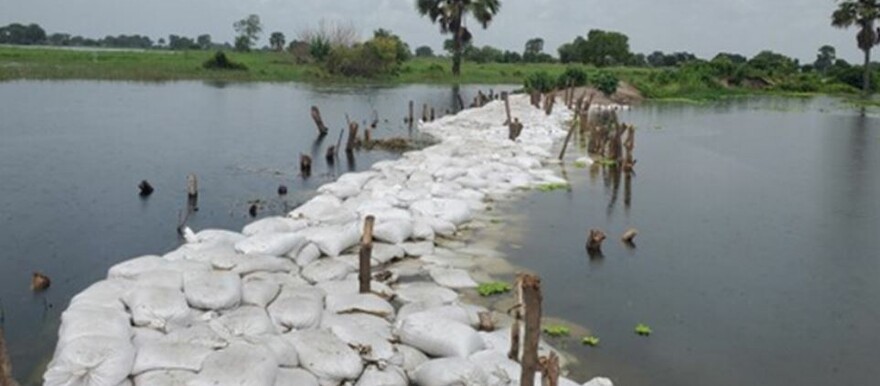The communities along the Nile River, particularly in Bor, Jonglei State, have expressed deep concerns over the government’s lack of proactive measures to mitigate the potential flood disaster.
The Minister of Water Resources and Irrigation, Pal Mai Deng, announced the concerning development as Lake Victoria’s water levels rose to a historic 13.6 meters, the highest recorded in the Nile Basin in over a century. This unprecedented rise has caused a domino effect, with the Nalubaale Power Station in Jinja, Uganda, now discharging a massive 2,600 cubic meters of water per second downstream which will go into the territory of South Sudan.
Peter Ajak Ayom, a Bor resident, told Radio Tamazuj that he is unhappy with the government’s inaction, highlighting the absence of awareness campaigns and the urgent need for the construction of protective dykes.
“I see that there are no preventive measures put in place by the government to protect the people from the coming floods. It is only in the town where I have seen they have put a dyke,” he said. “However, the dyke is not even covering the whole of town. The dyke starts only at Maluak-Chaat running to Arek, and the other areas of Kolnyang, Jale, and Angakuei are not protected.”
Ajak said the 2020 floods affected people and caused damage because the government did not act early. He said the authorities did not alert the population even if they were informed by the Ugandan government about the impending floods at the time.
Bor residents said they want to see swift and effective government intervention to prevent a repeat of the past and protect their homes and livelihoods.
The situation is dire for farmers like John Chol Mayol, whose livelihoods are at stake. With his farm situated along the vulnerable banks of the Nile in Bor, he fears he might lose his land, fruit trees, and crops.
“The water has started entering my farm, which is near the Nile, and now we have stopped work because of that. The water has never dropped from the Nile since the previous flooding.” He stated. “The government is only trying to work on culverts in the town but they have not come to our side to check on us and see what to do. So, I am worried that if the said water comes, it may turn disastrous.”
Chol and other farmers are calling on the government to take immediate action and construct dykes to safeguard their farms and homes.
The looming flood crisis brings back haunting memories of the devastating floods in 2020 that affected thousands of people across the region of Upper Nile and other parts of South Sudan.
James Ghai Makhor, the Commissioner of Bor County, said he is aware of the forecast floods and his office is exerting efforts within its means to repair the existing dykes in parts of Bor County and will launch an awareness campaign in swampy areas.
“We are working on the maintenance and repair of the existing dykes in Jale, and ARC Company is helping us on the Malou dyke,” he said. “So, the government is trying its best to repair and see weak parts, and then they will be leveled and fixed. We expect the floods to come at the end of June and early July.”
According to the ministry of Water Resources and Irrigation, South Sudan will experience flooding as a result of the unusual water release at the Ugandan dam, which could be more severe than what occurred in 2020.




